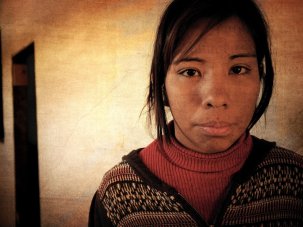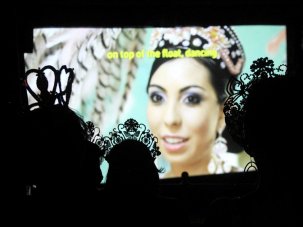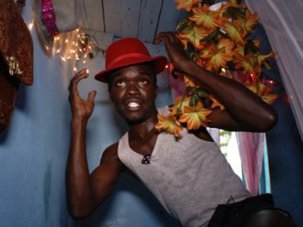Web exclusive
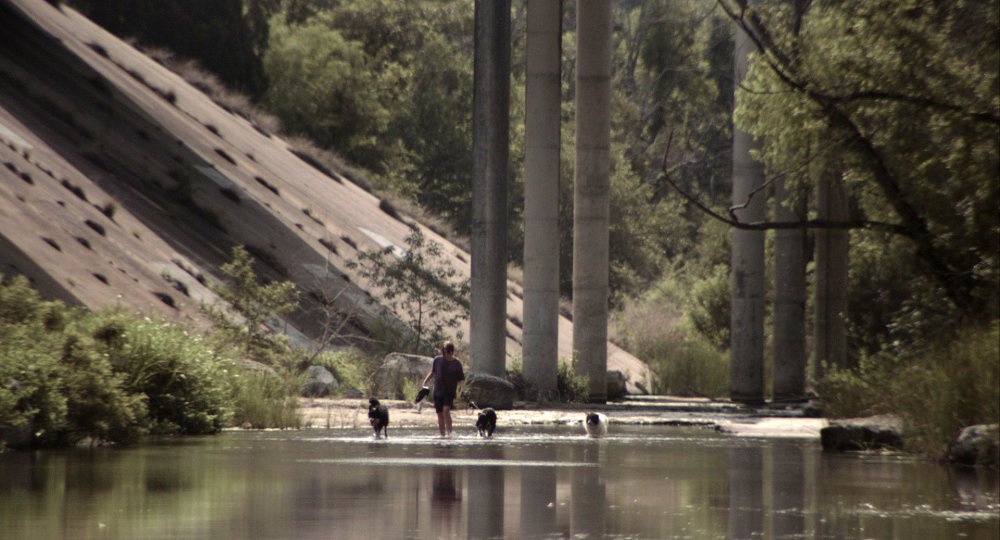
Annie Silverstein’s Skunk, which won this year’s Bermuda Shorts Grand Jury Prize
Among the 14 prizes picked up by UK filmmaker Andrea Arnold’s career-making short Wasp before it won the Best Short Film Oscar in 2005 was the 2004 Bermuda Shorts Grand Jury Prize. What’s significant about this factoid is that winning the Bermuda award guarantees the recipient a shortlisting place for the Oscar. That’s one good reason why short filmmakers want their films shown in Bermuda, and one the reasons why I visited the festival this year – that and of course the island’s fascination/repulsion as a beautiful place which inspired Shakespeare’s The Tempest, attracts the super-rich, has a declining tourist trade and whose main industry is reinsurance.
18th Bermuda International Film Festival
20-26 March 2015 | Hamilton and Pembroke, Bermuda
You’d think the presence of so much wealth on the island would make it a simple matter for a film festival to be funded; but if that was once the case, it’s no longer. Much has changed in Bermuda since Arnold’s film won. The 2008 crash lost the festival most of its financial backing, and subsequently it has had to pare back its offering. Where they used to show hundreds of films, this year they put on 15 features and three packages of shorts. As I soon learned in conversations with the ever-friendly and welcoming locals, those features represent the only chance islanders have to see non-mainstream cinema in a cinema.
Fortunately, the choice this year was well made. For instance, the fiction features included The Tribe, Beloved Sisters, ’71, The Tale of the Princess Kaguya, Mommy, Gett: The Trial of Viviane Ansalem, Phoenix, Two Days, One Night, White God and The Farewell Party. There were also three strong documentaries in Citizenfour, Virunga and When Elephants Fight (about which more below). That’s a pretty good sample of some of the year’s better films.
As the organisers – ably led by debutante festival director Andrew Stoneham – made clear, the event has only just broken even for the first time since 2008, so bigger things might be expected in future. In the meantime it was intriguing to see how they marshalled limited resources.
One approach that proved successful was to offer quality scriptwriting masterclasses. The opening session, More Than Money Talks, with actor-screenwriter Naomi McDougall Jones, was about how this prolific playwright went about scripting her first feature film Imagine I’m Beautiful, a thriller about a Utah woman (played by Jones herself) who shares a New York apartment with its initially unfriendly owner, a woman artist. The two soon become fast friends until we discover that one is a control freak beyond the call of reason. I confess I had to miss Jones’s actual session, but got the gist of her approach when I talked to her later: she does not think about structure much in her first draft, and rarely considers it during the whole process.
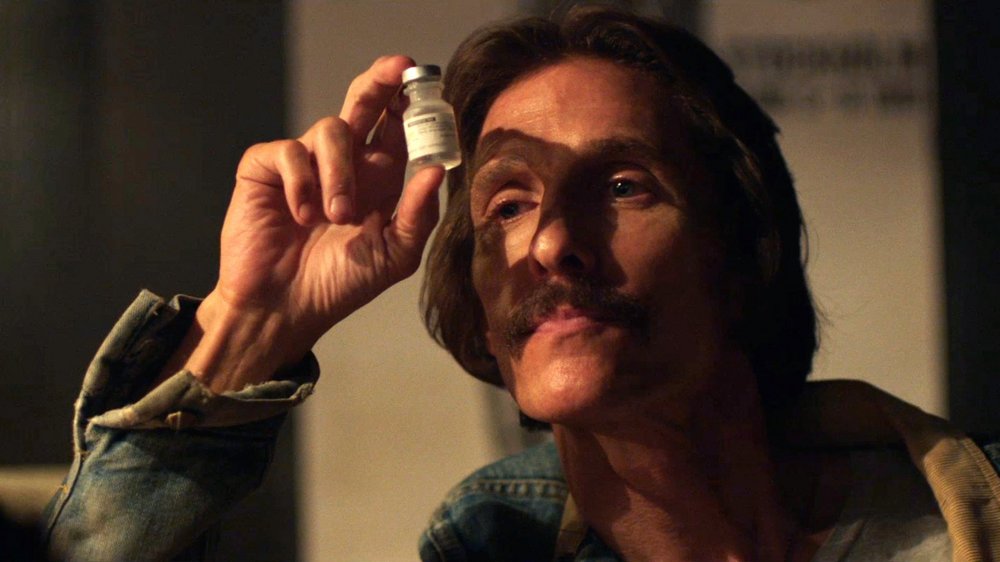
Matthew McConaughey as Ron Woodroof in screenwriter Craig Borten’s Dallas Buyers Club
Jones’s stance contrasted with Deconstructing the Script in which, on a wet Saturday morning, screenwriter Craig Borten described the 21-year arc from his first meeting in 1992 with HIV patient Ron Woodroof to when Dallas Buyers Club finally got made. I learned more about how Hollywood works from listening for a couple of hours to this seemingly laconic but personally generous speaker than I had for a very long while. Borton’s a fan of the Robert McKee course and Christopher Vogler’s book The Writer’s Journey, but it was his tales of pitching to studios and the caprice of Hollywood that I found so richly revealing.
Dallas Buyers Club was also the subject of the next day’s session, The Hart of Storytelling, in which James V. Hart, the writer of Hook, Bram Stoker’s Dracula and Contact, drew out, in collaboration with the class, a sort of angiogram of the peaks and troughs of Woodroof’s progress through the film, with Borten present to comment on his ideas. Borten had suggested in his session that the third act had been trouble all the way through. Hart set out to demonstrate that the film had a great third act in the court case that gives Woodroof a consolation prize and the respect of those he’s helped. One piece of Hart’s advice I’ve been using since is Wake Up, Get Up: if you wake up in the middle of the night, rather than waste time lying in bed chewing things over you get up and get writing. All these sessions proved popular with the many budding screenplay writers on the island.
Borten served double duty as a member of the Bermuda Shorts Jury alongside its president, Christine Vachon of Killer Films, ace producer of way too many US indie and TV triumphs to list here – who, in a panel discussion, gave her 101 on indie film production and opined that, for New York teens, YouTube is the modern equivalent of punk – and Hilary Salzmann, producer of the documentary You Belong to Me: Sex Race and Murder in the South. A slight wobble in terms of jury maintenance – a delicate art – was soon smoothed out and I joined their group to watch two out of the three shorts packages.
One nice coincidence arose around the fine Mexican short Gloria, directed by Luis Hernandes de la Pena, which tracked the life of a bus driver who doubled as a drag performer in nightclubs and won a Special Jury Prize. It so happens that Bermuda boasts a bus driver whose experience exactly mirrors that of Gloria. The Bermuda Shorts Grand Jury Prize, the one that qualifies a film for Oscar shortlisting, was won by Annie Silverstein’s characterful Skunk, an intimate portrait of a 14-year-old girl, close to her rescue dog, who’s humiliated by a boy with a chip on his shoulder.
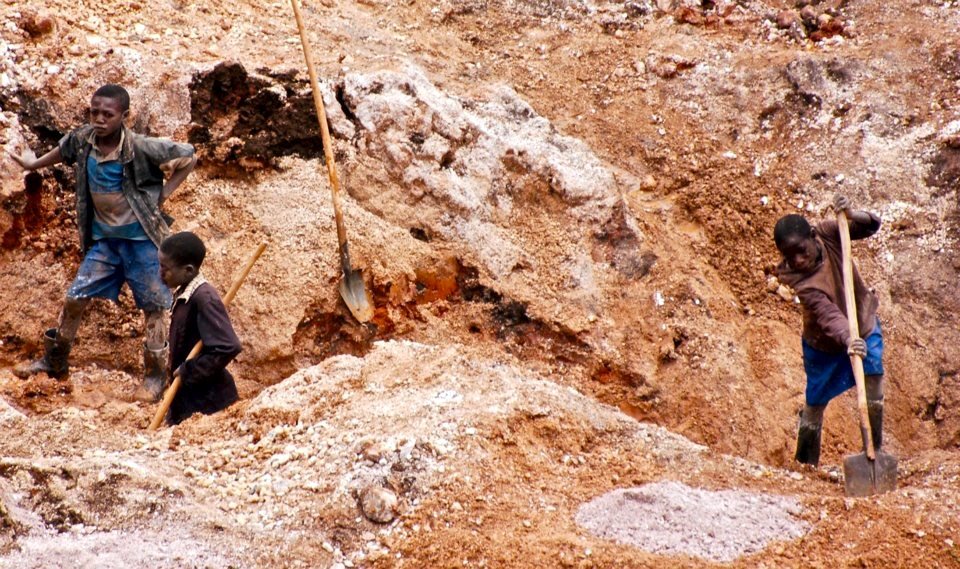
When Elephants Fight (2014)
The most powerful feature I saw in Bermuda – bearing in mind that I’d seen many titles before I arrived – was the documentary When Elephants Fight, a study of the inhuman exploitation of ordinary people in the Congo for the benefit of corporate mineral mining interests (usually of US or UK origin). Its charismatic director Michael Ramsdell had run out of money on the project but knew he had some crucial material and could get more, so he did a Ted Talk in Bermuda to raise the rest, with great success. The result is fairly conventional in form but in terms of persuasive emotional power and getting to the roots of despair in the Congo, I can only say that When Elephants Fight put my heart in my throat.
To see that film on an island where racism is much closer to the surface than it is in the UK – I overheard several unacceptable casual remarks – just makes it kick harder. Racism was on my mind all the time because I was re-reading Jean Rhys’s tropical gothic masterpiece Wide Sargasso Sea, about the earlier life of Antoinetta/Bertha Mason, the Creole woman in the attic reckoned insane in Charlotte Bronte’s Jane Eyre. I’d love to see a director such as Ava DuVernay, Claire Denis or Amma Asante make a film of this, for while it has its own point-of-view racist problems, it cuts deep into what we’ve learned from chroniclers and historians about the poisonous internecine entanglements of those who lived amidst the holocaust of slavery and then had to adapt to the subtler oppressions of ‘emancipation’. Bermuda is not mid-19th-century Jamaica, where that novel is set; instead it’s in the middle of the Sargasso Sea, far away from the Caribbean, 600 miles off the coast of the Carolinas. Its early history, however, is entirely bound up with the colonisation of Virginia, and stratifications of colour clearly remain structural.
But none of this had much to do with the Bermuda Film Festival, so it would be unfair to end my report on such a heavy sanction. One felt a strong force of collective will and generosity there to make the week a potent cinematic experience for locals. It was certainly a convivial, relaxing and versatile location in which to meet film talents, and I’m confident future editions will only become more so.
-
The Digital Edition and Archive quick link
Log in here to your digital edition and archive subscription, take a look at the packages on offer and buy a subscription.




